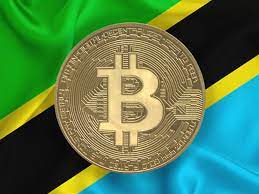Tanzania, like many nations, has faced the challenge of regulating crypto assets within its borders. The regulatory approach to crypto assets in Tanzania has evolved over the years, shifting from skepticism and caution to an exploration of potential regulatory frameworks.
In this article, we will explore the past and current state of crypto asset regulation in Tanzania, highlighting the challenges, opportunities, and trends that are shaping the country’s crypto landscape.
The Initial Stance: Skepticism and Caution
In 2017, the Director of National Payment Systems of the Bank of Tanzania (BoT) declared that crypto assets were not recognized in the country. Moreover, individuals who used crypto assets were told that they would not receive assistance from official channels if anything went wrong. This initial stance was one of skepticism and caution, reflecting a lack of recognition and acceptance of crypto assets within the Tanzanian financial system.
The Ban on Crypto Assets
In the following years, the Bank of Tanzania took a more definitive stance by banning the use of crypto assets. The central bank issued public notices that emphasized the sole acceptance of the Tanzanian Shilling as legal tender. According to these notices, the use of crypto assets was contrary to existing foreign exchange regulations.
The Bank of Tanzania underscored its exclusive authority, as stipulated in Section 26 and 27 of the Bank of Tanzania Act, 2006, to issue banknotes and coins and declare legal tender in the country. The bank’s public notices warned the public against trading, marketing, and using virtual currencies, making it clear that virtual currencies were not legally authorized in Tanzania.
No Specific Legal Framework
One key aspect to understand about Tanzania’s crypto asset regulatory landscape is the absence of a specific legal framework for regulating crypto assets through the Bank of Tanzania. Instead, the central bank has indicated that it is studying internet currencies with the goal of finding a permanent regulatory solution. As a result, there are currently no enacted regulations or legislation specifically governing digital currencies in Tanzania.
Thriving Crypto Asset Mining Sector
Interestingly, despite the ban on crypto asset use, Tanzania has been reported to have a substantial crypto asset mining sector. The country is rated 72nd out of 249 countries actively involved in digital currency mining, with a crypto-related activity ranking of 3.9 out of 10. This level of activity has led to crypto asset mining consuming more electricity than the entire non-crypto asset-related electricity consumption of the country.
Shift in Attitude
In recent years, there has been a shift in the Tanzanian government’s attitude towards crypto assets. This shift has been highlighted by President Samia Suluhu Hassan’s call for the exploration of crypto assets and the development of a regulatory framework. President Hassan’s statement indicates a growing recognition of the potential benefits of crypto assets and the need for a regulatory framework to govern their use.
A Central Bank Digital Currency (CBDC) on the Horizon
The Bank of Tanzania is currently considering the launch of its own central bank digital currency (CBDC). This move aligns with a global trend among central banks exploring the potential benefits of CBDCs. These benefits include enhanced financial inclusion, reduced transaction costs, and improved efficiency in payment systems. A CBDC would provide a secure and regulated alternative to crypto assets, addressing concerns about their volatility and lack of regulation.
Regulatory Challenges and Opportunities
The regulatory challenges and opportunities in Tanzania’s crypto asset landscape are multifaceted. The lack of comprehensive regulations governing digital currencies presents challenges for the government and regulators. To address these challenges, the following actions should be considered:
- Developing Comprehensive Regulations: Tanzania needs to establish comprehensive regulations and legislation that govern the use of crypto assets, decentralized finance, and blockchain technology. Clear regulations will provide legal certainty for businesses and individuals in the space and address the risks associated with these emerging technologies.
- Promoting Financial Inclusion: The introduction of a CBDC has the potential to enhance financial inclusion by providing a digital payment infrastructure accessible to all Tanzanian citizens. Collaboration between the government, regulators, and financial institutions is essential to ensure widespread adoption and usage of the CBDC.
- Addressing Risks and Challenges: The adoption of crypto assets and blockchain technology poses risks, including money laundering, fraud, and cybersecurity threats. To protect consumers and maintain financial stability, robust regulatory frameworks must be developed to address these risks.
- Fostering Innovation and Collaboration: The government should incentivize and support blockchain and crypto asset startups and projects. This approach encourages innovation and collaboration, driving economic growth and positioning Tanzania as a hub for blockchain and crypto asset development in Africa.
- Enhancing Financial Infrastructure: Tanzania must ensure that the country’s banking system supports Web3 businesses. This includes allowing these businesses to open bank accounts, perform transactions, and operate within the existing financial infrastructure. Clear and favorable tax guidelines should also be established to support the growth of these businesses.
- Balancing Regulation and Innovation: Striking a balance between regulation and innovation is essential. Overly burdensome regulations can stifle innovation, hindering the growth of the industry. The government should collaborate with industry stakeholders to develop regulations that foster innovation while addressing risks and protecting consumers.
In conclusion, Tanzania’s regulatory landscape for crypto assets has evolved from initial skepticism and a ban on crypto assets to an exploration of potential regulatory frameworks, including the development of a central bank digital currency. The government’s shift in attitude towards crypto assets suggests the potential for regulatory changes. As Tanzania continues to explore the adoption of digital currencies and the development of comprehensive regulations, the country’s crypto asset landscape is set for transformation, bringing opportunities for innovation and enhanced financial inclusion.




